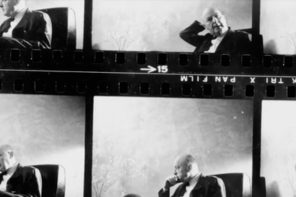Stephen Prothero gives a pretty good summary of the truly great commencement speech David Souter gave at Harvard. As more than one commentator has noted, Souter’s address was a brilliant deconstruction of “originalist” readings of the Constitution that deserves to be read again and again in law schools around the nation.
But I can’t quite agree with Prothero’s conclusion:
If Souter was speaking the truth at Harvard (and I think he was), we should take religion into account in selecting our most powerful justices, because no matter how fairly they read the Constitution and how objectively they apply the facts of a case, in the end they must, as Souter pointed out, adjudicate among competing goods. And this adjudicating—this judging—they can only do in light of what they themselves most deeply value.
Souter’s point — as I understand it, at least — was that legal analysis has to engage the ethical project of weighing competing values and interests. Otherwise, it’s just bloodless technocracy, or worse, the raw assertion of power over the powerless. (Now who do you suppose that could have been a shot at?) There’s nothing inherently religious about that process.
It’s true that for the foreseeable future, Supreme Court nominees are likely to come with religious affiliations, and presumably their faith informs their ethics. But it seems to me that “Tell me about your synagogue” is not the right question to be asking nominees. A more useful inquiry might be: “Hypothetically speaking, how would you weigh the competing interests in a class-action lawsuit seeking an injunction against all future offshore oil drilling in the Gulf of Mexico?”* To which the answer would be, “I don’t want to comment on any potential litigation that may come before me,” because our political process is stupid and nominees have to tap dance around what they actually believe lest somebody place an anonymous hold on them for playing softball.
Which, sigh, is exactly why people like Stephen Prothero want to use the placemarker of religion. We can’t actually talk about the values justices are supposed to have but can’t disclose, so we have to use the next best thing, which turns out to be just another tap dance— because everybody but the crazies know that it’s perfectly possible to have values without believing in God.
But everybody wants to keep the crazy people happy, lest we have an honest discussion about abortion and the gay and the megacorporations that are eating up the nation. So let’s talk faith instead, why not?
*To be fair, I would be very happy to hear religious question along these lines: “How would the God of Exodus – who is the Lord of both creation and liberation – use an unexpected path to accomplish the work of justice in the Gulf? As a follow-up, can pelicans be vehicles of grace?” But that’s just me.




